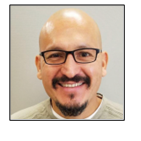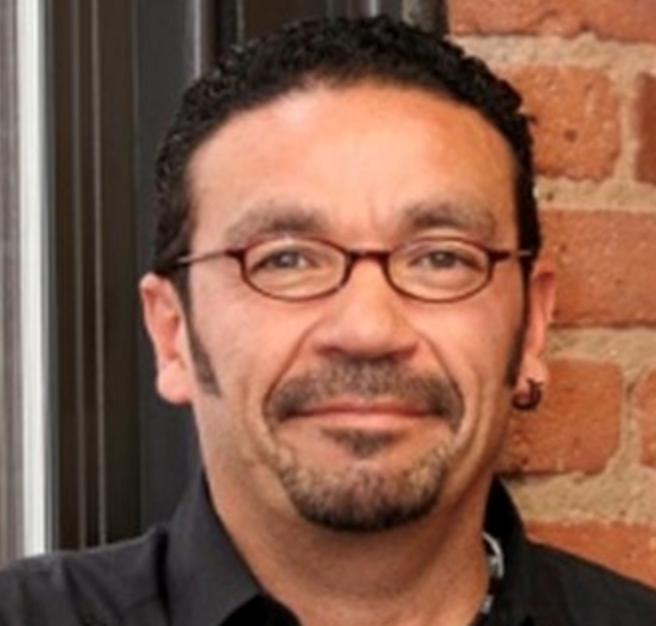Building Health & Resilience to the Opioid Epidemic in Underserved Communities
Dr. Haner Hernandez with panelists: Dr. Isabel Montemayor-Vazquez, Feliz Rodriguez, and José Salinas
Equity Upstream Lecture 2: (May 9th, 2023)
This lecture by Dr. Haner Hernandez is the second training in the Equity Upstream Spring 2023 Lecture Series that Mid-State Health Network (MSHN) developed to increase awareness and understanding of health disparities in the national overdose epidemic. The Equity Upstream initiative focuses on upstream structural issues—systemic racism, implicit bias, access barriers and others—and seeks to catalyze action to increase equity in Substance Use Disorder (SUD) services, access, quality of care and outcomes for historically underserved populations. Dr. Hernandez’ presentation took place on May 9, 2023, via Zoom from Springfield, MA, and was followed by a panel discussion with Michigan professionals from the Hispanic/Latiné community: Feliz Rodriguez (DEI Director, Ingham County Health Department), Dr. Isabel Montemayor -Vazquez (Executive Director of the Hispanic Latino Commission of Michigan), and José Salinas (Certified Peer Recovery Coach, Network 180).
Dr. Haner Hernández is a master trainer who’s worked for over 35 years developing, implementing, and evaluating culturally and linguistically intelligent youth & adult health prevention, intervention, treatment, and recovery support programs. He provides technical assistance and support to organizations that provide Substance Use Disorder (SUD) and gambling prevention, intervention, treatment and recovery supports. Dr. Hernández has over 30 years of experience in delivering addiction counseling and clinical supervision to professionals in the field and is himself a person in long-term recovery (36+ years) and is committed to eliminating health disparities by participating in processes that build equity. He has served as a consultant to a number of local and state health departments with a focus on disparities, building health equity, addiction treatment, and recovery supports. He teaches at the New England Addiction Technology Transfer Center at Brown University and the National Latino and Hispanic Prevention, Treatment Addiction Technology Transfer Centers funded by CSAT and serves on the Peer-Led Advisory Board of the National Addiction Peer Recovery Center of Excellence. Dr. Hernandez was appointed to SAMHSA Bringing Recovery Supports to Scale Technical Assistance Center Strategy (BRSS TACS) steering committee in 2014 and the Criminal Justice Policy Committee in 2018. He has served a consultant to several federally funded initiatives in the areas of behavioral workforce development, HIV/AIDS, Substance Use Disorders prevention and treatment, military service members, their families and TBI and PTSD, and pediatric asthma. Dr. Hernández serves as faculty at the New England School of Addiction Studies since 1998, has taught a number of undergraduate and graduate courses, and has presented at several national and state conferences. Dr. Hernández serves as President of the Board of Directors of the Massachusetts Board for Voluntary Certification of Drug and Alcohol Counselors, was appointed to the Springfield Public Health Council in 2006 and served on the
Massachusetts Governor’s Latin American Advisory Commission in Massachusetts from 2000-2004. Haner earned his GED in prison, a Bachelor of Science in Human Services from Springfield College and a Master of Education with concentrations in Counseling Psychology and Addiction Studies from Cambridge College in Massachusetts. His doctoral degree was earned at the School of Public Health and Health Sciences at the University of Massachusetts, Amherst. His major was Community Health Education, and his minor was Social Justice Education. In addition, Mr. Hernandez holds an advance Certification in Drug and Alcohol Counseling at the reciprocal level, is also licensed in Massachusetts, and is a Certified Prevention Specialist.
 Dr. Isabel Montemayor-Vazquez is the Executive Director of the Hispanic Latino Commission of Michigan, a governor appointed commission that advises both the legislature and Executive Office of the Governor on pertinent issues impacting the Latinx population in the state of Michigan. Dr. Montemayor-Vazquez holds a Ph.D. in Medical Anthropology (MSU), an M.A. in Cultural Anthropology (MSU), an M.A. in Latin American Studies (UT-Austin), and a B.S. in Political Science and Spanish (CMU). She previously served as Assistant Professor at the University of Texas at Arlington in the Sociology and Anthropology Department (Teaching Latino Health Issues, Border Culture, Global Cultures and Medical Anthropology). She also worked for the Michigan Public Health Institute as a Senior Research Associate and Co-PI on a statewide assessment of Michigan’s expanded Medicaid program-The Healthy Michigan Plan. Her anthropological research has focused on the social determinants of health and the impact immigration and health care policy have had on the daily lives and complex health experiences of mixed status families in Michigan and in Michoacan.
Dr. Isabel Montemayor-Vazquez is the Executive Director of the Hispanic Latino Commission of Michigan, a governor appointed commission that advises both the legislature and Executive Office of the Governor on pertinent issues impacting the Latinx population in the state of Michigan. Dr. Montemayor-Vazquez holds a Ph.D. in Medical Anthropology (MSU), an M.A. in Cultural Anthropology (MSU), an M.A. in Latin American Studies (UT-Austin), and a B.S. in Political Science and Spanish (CMU). She previously served as Assistant Professor at the University of Texas at Arlington in the Sociology and Anthropology Department (Teaching Latino Health Issues, Border Culture, Global Cultures and Medical Anthropology). She also worked for the Michigan Public Health Institute as a Senior Research Associate and Co-PI on a statewide assessment of Michigan’s expanded Medicaid program-The Healthy Michigan Plan. Her anthropological research has focused on the social determinants of health and the impact immigration and health care policy have had on the daily lives and complex health experiences of mixed status families in Michigan and in Michoacan.

 José Salinas is a State of Michigan Certified Peer Recovery Coach and has been working for the Kent County CMH Network180 Access Center since 2014 in multiple roles. At Access, he supported individuals who came in with crises related to substance misuse as well as mental illness. He also worked with the Grand Rapids Homeless Outreach Team and currently is a Community Outreach Specialist, developing relationships within the community to bring awareness of mental health services. He has years of experience training in Mental Health First Aid & Emotional CPR, and he contracts with the State of Michigan as a Trainer for Certified Peer Recovery Coaches, alongside other trainings. The combination of his personal history and professional experience ignite his interest in overdose response and racial equity. His journey includes being in long term recovery from heroin addiction and other drugs, related mental health conditions, incarceration, and homelessness. Jose is an active member of the Michigan Opioid Task Force’s Racial Equity Workgroup.
José Salinas is a State of Michigan Certified Peer Recovery Coach and has been working for the Kent County CMH Network180 Access Center since 2014 in multiple roles. At Access, he supported individuals who came in with crises related to substance misuse as well as mental illness. He also worked with the Grand Rapids Homeless Outreach Team and currently is a Community Outreach Specialist, developing relationships within the community to bring awareness of mental health services. He has years of experience training in Mental Health First Aid & Emotional CPR, and he contracts with the State of Michigan as a Trainer for Certified Peer Recovery Coaches, alongside other trainings. The combination of his personal history and professional experience ignite his interest in overdose response and racial equity. His journey includes being in long term recovery from heroin addiction and other drugs, related mental health conditions, incarceration, and homelessness. Jose is an active member of the Michigan Opioid Task Force’s Racial Equity Workgroup.
Other Lectures in the Series
Camara Jones, MD, MPH, PhD – When Systems Damage People: Anti-Racism Lessons for Battling the Opioid Epidemic (2022-2023 Leverhulme Professor in Global Health & Social Medicine, King's College, London)
Donald Warne, MD, MPH – Culturally Based Approaches to Addiction & Recovery in Indigenous Communities (Director, John Hopkins’ Center for Indigenous Health) & panelists: David Garcia, Hunter Genia, & Anna Winters
Larke Huang, PhD – Racial & Ethnic Disparities in the Opioid Crisis: A Perspective from SAMHSA’s Office of Behavioral Health Equity (Director, Office of Behavioral Health Equity, SAMHSA) & panelists: Dr. Allison Lin & Dr. Lara Coughlin (UofM’s Dept of Psychiatry & Addiction Medicine)

